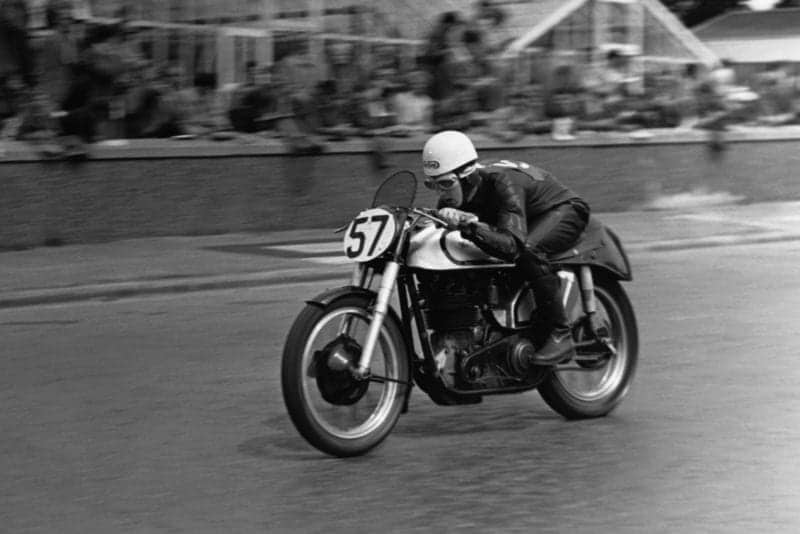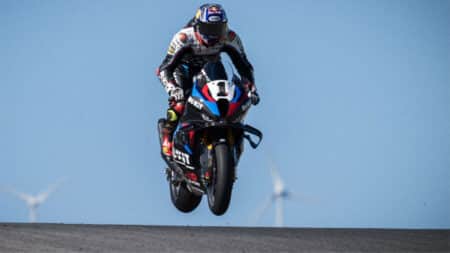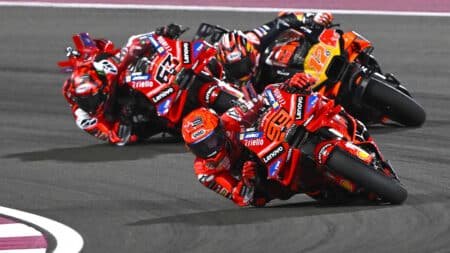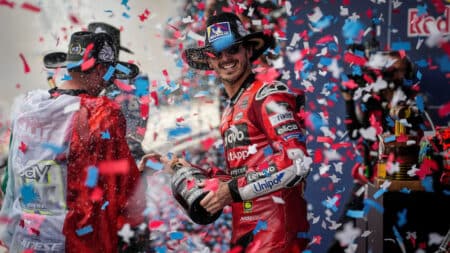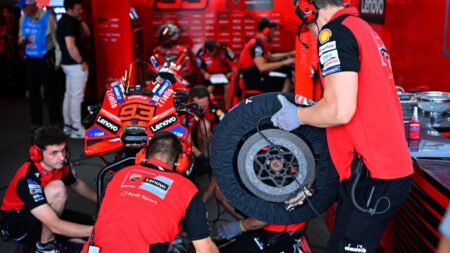By the end of the 1980s GP racing had changed forever. It was no longer the Continental Circus: a bunch of racing gypsies struggling to put petrol in their fuel tanks and food in their mouths and hoping to stay alive. Instead it had become a high-octane TV show: a petrolhead’s soap opera, in which the millionaire masters of new-wave riding techniques competed to have the grandest motorhome.
The first two world championship seasons of 1949 and 1950 counted just six races, between June and September. The off-season between the final GP of 1949, at Monza on September 4, and the first round of 1950, on the Isle of Man, on June 10, lasted nine months and six days.
But that short GP season didn’t make for an easy life, far from it. To earn a crust most riders contested dozens of minor events, most of them round-the-houses races in towns throughout Europe, and just getting to the circuits through the war-torn landscape was a challenge.
“A lot of road signs were still full of bullet holes and the roads in France were still really rough and full of muck,” recalls Cecil Sandford, who raced his first GPs in 1950 and won MV Agusta’s first grand prix two years later.
Each era of grand-prix racing offers its own particular challenges to those working in the sport: safety, money, working conditions and so on.
If you speak to the mechanics – the people who literally make the wheels go around – they will tell you which eras were the most difficult: was it when there were ten GPs per season or is it now, with the championship originally planned to run over twice that many races?
Mechanics from the 1970s talk of working without electricity or running water and wondering where their next meal was coming from
Mechanics who tended GP bikes during the 1970s talk of the paddock camaraderie and the fun they had, but they also talk of the nightmare of fixing bikes in paddocks that were little better than fields, often working without electricity or running water and wondering where their next meal was coming from.
The 1980s – specifically the arrival of teams association IRTA – solved most of those problems, but as always in life, when you fix one problem another pops up.
I remember talking to renowned engineer Mike Sinclair during the 1999 GP season. Sinclair is best known for guiding Wayne Rainey to his three 500cc titles in the early 1990s, but the New Zealander had been working in the paddock since the 1970s, winning GPs with Pat Hennen, Randy Mamola and others.
He told me he was quitting at the end of the 16-round 1999 championship because the season was getting too long – for the first time it was about to drag itself into November. Sinclair is a keen windsurfer (these days he designs boards and fins) and he had decided that GP racing was making his life too one-dimensional – all bikes, no windsurfing – so he packed his laptop and went home to enjoy the waves.
